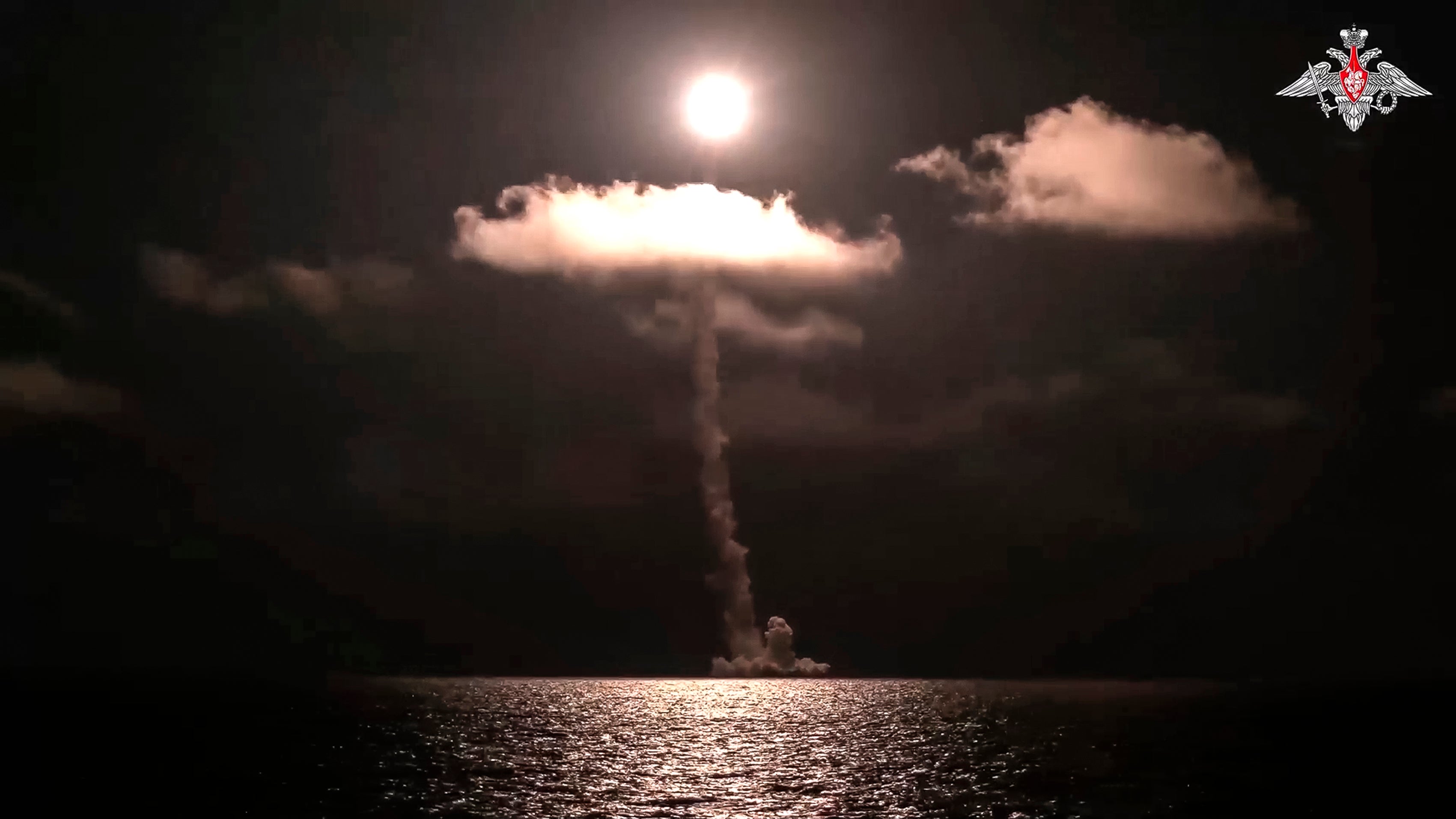Russia test launches intercontinental ballistic missile from new nuclear submarine
Kremlin spokesperson Dmitry Peskov says relations with the United States ‘were below zero’
Your support helps us to tell the story
From reproductive rights to climate change to Big Tech, The Independent is on the ground when the story is developing. Whether it's investigating the financials of Elon Musk's pro-Trump PAC or producing our latest documentary, 'The A Word', which shines a light on the American women fighting for reproductive rights, we know how important it is to parse out the facts from the messaging.
At such a critical moment in US history, we need reporters on the ground. Your donation allows us to keep sending journalists to speak to both sides of the story.
The Independent is trusted by Americans across the entire political spectrum. And unlike many other quality news outlets, we choose not to lock Americans out of our reporting and analysis with paywalls. We believe quality journalism should be available to everyone, paid for by those who can afford it.
Your support makes all the difference.Russia on Sunday claimed it successfully test-fired an intercontinental ballistic missile designed to carry nuclear warheads from its nuclear-powered submarine Imperator Alexander III.
The test comes amid soaring tensions between Russia and the West over Vladimir Putin's 20-month-long invasion of Ukraine.
Moscow passed a law last week withdrawing its ratification of the global treaty banning nuclear weapons deal – a move severely criticised by Washington.
“Firing a ballistic missile is the final element of state tests, after which a decision will be made to accept the cruiser into the navy,” the Russian defence ministry said in a statement.
The submarine fired the Bulava missile from an underwater position in Russia’s northern White Sea and hit a target in the far-eastern region of the Kamchatka peninsula, the ministry said without confirming when the test was conducted.
The 12-metre-long Bulava missile has an estimated range of around 8,000km and can carry up to six nuclear warheads.
The Imperator Alexander III is one of the new Borei-class nuclear submarines that carry 16 Bulava missiles each and are intended to serve as the core naval component of the nation’s nuclear forces. It also has modern torpedo weapons, the ministry said.
Mr Putin took part in a ceremony in December setting the Imperator Alexander III afloat, according to state news agency TASS.

The Russian navy has three nuclear-powered submarines of the Borei class in service, while one more is finishing tests and three more are under construction, the ministry said.
Mr Putin has said that rescinding the ratification of the Comprehensive Nuclear Test Ban Treaty (CTBT) would “mirror” the stand taken by the US, which has signed but not ratified the nuclear test ban.
Mr Putin last month said he was not ready to say whether or not Russia should resume nuclear testing. Both houses of the Russian parliament voted last month to revoke Moscow’s ratification of the bill.
The CTBT bans all nuclear explosions anywhere in the world, but the treaty was never fully implemented. It was adopted in 1996.
US secretary of state Antony Blinken said Russia’s move “represents a significant step in the wrong direction, taking us further from, not closer to, entry into force. Russia’s action will only serve to set back confidence in the international arms control regime.”
“Russian officials say Russia’s planned move to withdraw its ratification does not mean that it will resume testing, and we urge Moscow to hold to those statements,” Mr Blinken added.
Kremlin spokesperson Dmitry Peskov said in an interview aired on Sunday that relations with the United States were below zero.
“Relations are at zero – or I would say below zero,” Mr Peskov said, though he added that at some point the leaders of Russia and the United States would have to resume contact.

Join our commenting forum
Join thought-provoking conversations, follow other Independent readers and see their replies
Comments